Discovering COVID-19 Inequities and Systemic Vulnerabilities & the Role of Artificial Intelligent: Towards Future Policy Implications
Information and Registration Form (please scroll down)
FEBRUARY 3 10:00AM to 12PM (EST TORONTO)
This webinar brings together a diverse group of scholars and experts to discuss some of the inequity and systemic vulnerabilities of covid-19 pandemic.
The webinar is designed:
- to provide insights around some of the major equity and systemic vulnerability challenges and issues arising from the COVID-19 pandemic.
- to discuss the role that AI played and can play in discovering some of these equity and systemic vulnerabilities
- to highlight some of the policy implications for the current situation and future pandemic and disaster events to minimize equity issues and systemic vulnerabilities

Speakers & Panelists Biography
Dr. Nathaniel Osgood
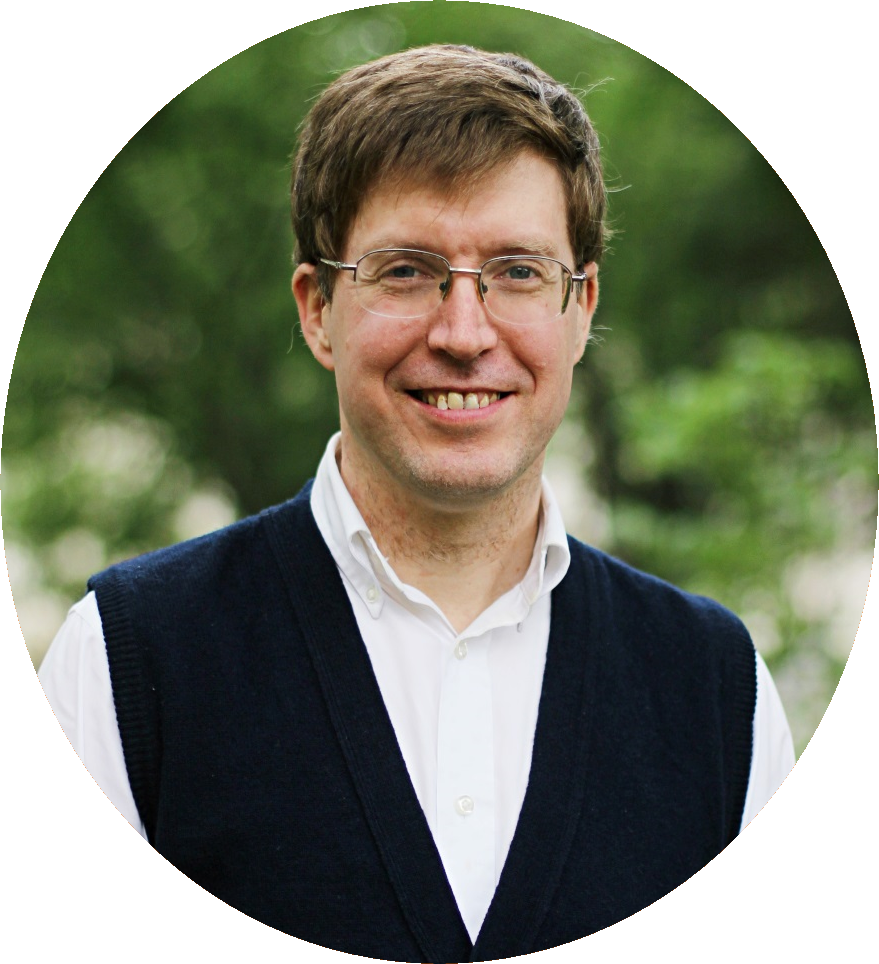
Nathaniel Osgood serves as Professor in the Department of Computer Science at the University of Saskatchewan, and Director of the Computational Epidemiology and Public Health Informatics Laboratory. His research focuses on combining tools from Systems Science, Data Science, Computational Science and Mathematics to inform decision making in health & health care. Dr. Osgood serves as Chief Research Advisor for the Saskatchewan Centre for Patient Oriented Research and has contributed to or co-led over a dozen initiatives involving people with lived experience with dynamic modeling, machine learning and/or big data collection efforts. Dr. Osgood served as the technical director of COVID-19 modeling for the Province of Saskatchewan from March 2020-April 2021. Through cross-leveraging combinations of dynamic modeling, Artificial Intelligence/Machine Learning, and diverse data sources, has CEPHIL delivered COVID-19 situational analyses and short-term forecasts daily for Saskatchewan, multiple times a week for all provinces across Canada for PHAC and once a week to First Nations Reserves across Canada via FNIHB. In addition to dozens of published applications of agent-based, compartmental modeling and in diverse health & health care areas and guiding analytics that have shaped important policy and investment decisions at the Saskatchewan at the Ministry of Health, Dr. Osgood has contributed techniques hybridizing multiple simulation approaches with machine learning tools and which leverage such hybrid models with data from multiple high-velocity data sources, innovations to improve dynamic modeling quality and efficiency, introduced novel modeling languages, and worked enhance dynamic modeling formulation using approaches from category theory. Among his many data science contributions, Dr. Osgood is the co-creator of diverse epidemiological surveillance and data collection systems, most prominently the Google Android-, iPhone- and web-based Ethica Data platform applied in hundreds of health studies around the world, including for multiple COVID-19 related studies. Prior to joining the U of S faculty, he graduated from MIT with a PhD in Computer Science, served as a Senior Lecturer and Research Associate at MIT and served in a variety of academic, consulting and industry positions.
Dr. Ellie Perkins
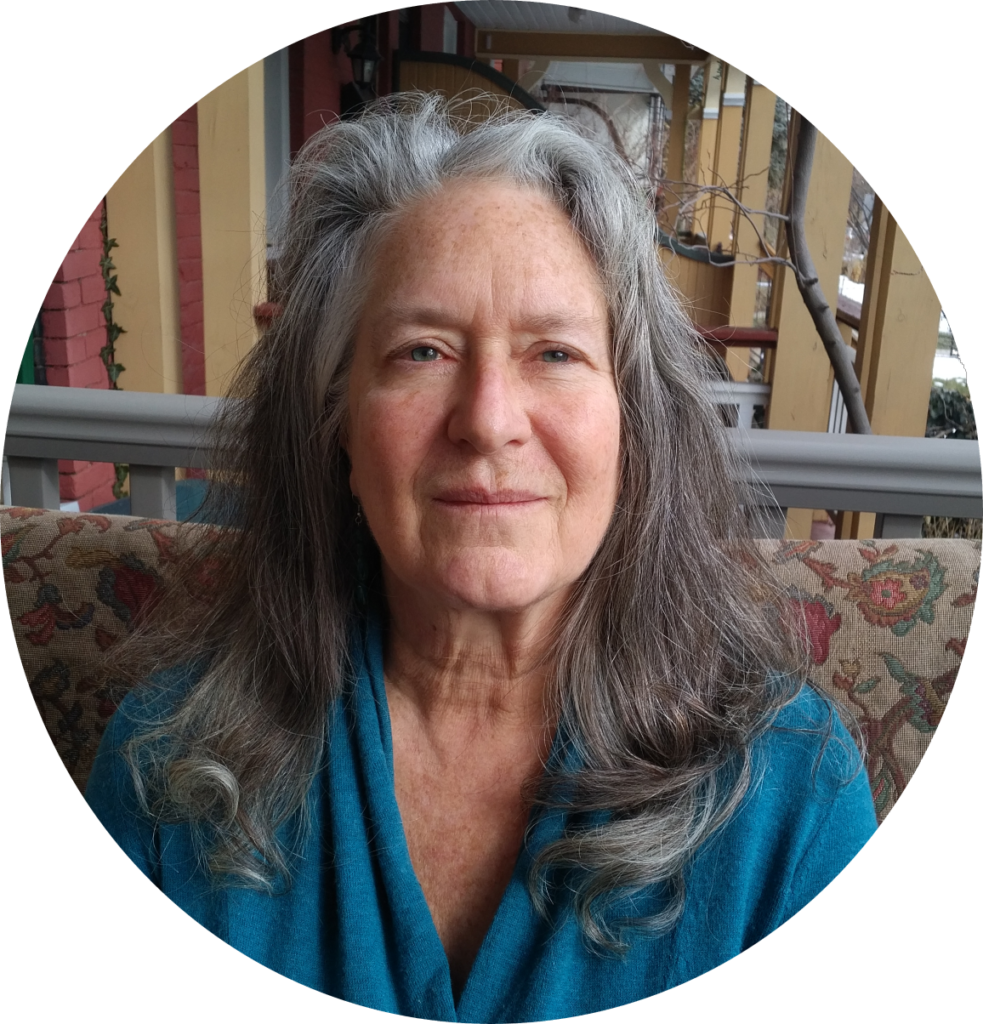
Dr. Patricia E. (Ellie) Perkins is a Professor in the Faculty of Environmental and Urban Change, York University, Toronto, where she teaches ecological economics, community economic development, climate change science & policy, and critical interdisciplinary research design. She has also taught at Eduardo Mondlane University in Maputo, Mozambique. She holds a PhD in Economics from the University of Toronto and has authored many publications on feminist ecological economics, climate justice, commons, and participatory governance. Her research and community projects with civil society and university partners address environmental and climate injustice, economic inequities, and the transition to sustainable provisioning.
She is a Lead Author for Chapter 5 (“Demand, Services, and Social Aspects of Mitigation”) of the Intergovernmental Panel on Climate Change Sixth Assessment Report (2022).
She directed international research projects on community-based watershed organizing in Brazil and Canada (2002-2008) and on climate justice and equity in watershed management with partners in Mozambique, South Africa and Kenya (2010 – 2012). Her most recent international project with partners in Brazil, Chile, South Africa, Cameroon, Kenya, Mozambique, and Nigeria is building a global network of participatory researchers on Climate Justice, Ecological Economics and Commons Governance (qesclimatejustice.info.yorku.ca).
Mr. Emrul Hasan
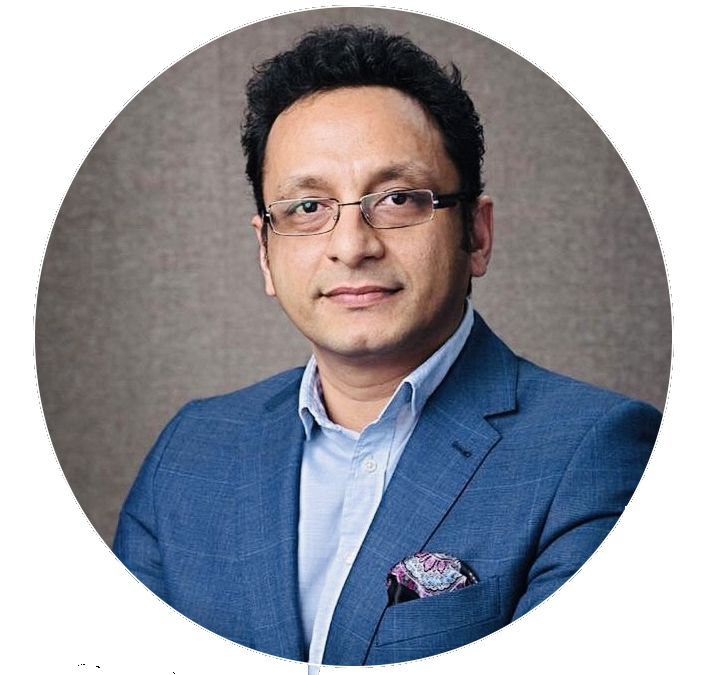
Emrul Hasan is a globally recognized transformational, passionate and inspirational leader in the social and economic development sector with extensive leadership experiences and successful track records in impact measurement and accountability, high impact and evidence-based social and economic programs and policies, ESG and sustainability, gender lens and impact investment, gender equality and intersectionality, diversity, equity and inclusion (DE&I), digital transformation and solutions, strategic planning development and execution, organization development and strategic partnership development in diverse and complex organizations, sectors, and contexts in 27 countries. Prior to joining H+K Strategies as the Vice President, Citizenship and Sustainability, Emrul was a Vice President of Program Effectiveness and Quality of Plan International Canada and was also a member and Co-chair of CSO Partnership Advisory Group (CPAG) to advise Global Affairs Canada on the implementation of CSO Partnership Policy. He was also an Executive Lead for the Diversity, Equity, and Inclusion effort in Plan Canada and a member of the Anti-racism and Equity Council of Plan International. Emrul has a post-graduate degree in Development Finance, Trade, and Economics, MIT certification in impact evaluation and a bachelor’s degree in Business Administration with a major in finance and accounting. Recognized as a thought leader in accountability and measurement, economic development, gender equality, child rights, governance, poverty, and food security, Emrul has been invited to speak as a keynote speaker at over 25 high profile conferences, United Nations General Assembly (UNGA) and The Commission on the Status of Women (CSW) events, Intersessional UN Expert meetings and the Senate of Canada at the Standing Senate Committee hearing on Human Rights. Frequently called upon by media, radio and television, he contributed to the Globe and Mail and has appeared on CTV News, Canada AM and TVO (the Agenda with Steve Paikin).
Dr. Peiling Yap

Dr. Peiling Yap is a Swiss epidemiologist, born and raised in Malaysia and Singapore, and has research experiences in China, South Africa and Singapore. During her time at the Swiss Tropical and Public Health Institute, she investigated the impact of intestinal worms on physical fitness, psychosocial health and nutrition in children, efficacy of their treatments, and the use of cartoons in health education. Peiling also co-designed a health care management course for health officials in China under the China-UK Global Health Support Programme.
At the National Center for Infectious Diseases, Singapore, she used mixed methodology to implement and evaluate public health interventions, such as mobile applications for community-based syndromic surveillance of acute respiratory infections, and a HIV self-testing intervention. She also conducted an implementation research workshop for healthcare professionals and served as an adjunct assistant professor at the National University of Singapore.
Currently as the Chief Scientist of I-DAIR, she is co-leading the research and capacity development portfolio of the collaborative. In particular, she is working with I-DAIR’s partners across the world on research topics such as pandemic preparedness and response, anti-microbial resistance, open health and maternal and child health.
Dr. Patrick Okwen
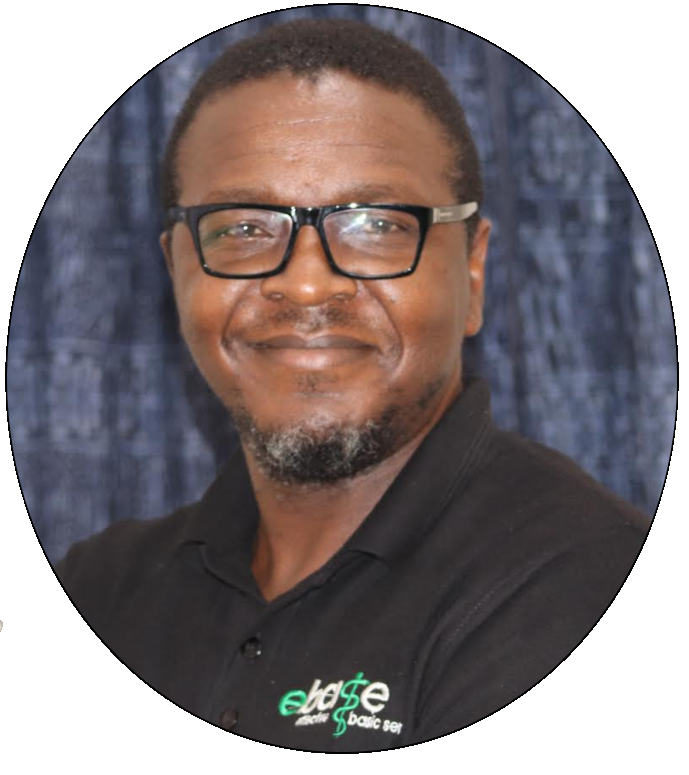
Patrick Okwen (MD) is team lead at eBASE Africa and District medical Officer at the Bali District Health Services at the Ministry of Health in Cameroon. He is also board member at Guidelines International Network and lead editor at EBMAfrica Network. He is also active in getting research evidence into policy, practice, and households in Middle Africa. His work includes conducting systematic reviews with the Cochrane collaboration, conducting evidence implementation projects with the Joanna Briggs Collaboration, conducting impact evaluations with development agencies including the World Bank, WHO, and Ambassade de France au Cameroun. He has used digital health extensively at district level in Cameroon to improve maternal and child health using phone based and web-based applications. These include use of geospatial and qualitative data to support district level decision making and integration into DHIS2. Patrick is currently developing digital health and artificial intelligence approaches for sexual and gender-based violence, maternal and child health, evidence informed decision making, and clinical practice guidelines.
Twitter: @okwen and eBASE_Africa LinkedIn: https://www.linkedin.com/in/mbah-patrick-okwen-9796211a/
Moderator
Dr. Jude Kong
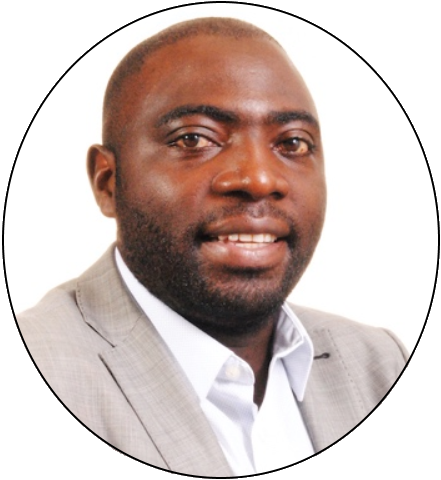
Dr. Jude Kong is a professor at York University (www.judekong.ca), Canada and the founding Director of the Africa-Canada Artificial Intelligence and Data Innovation Consortium (ACADIC) (http://acadic.org). Additional, he is a member of the Canadian Black Scientist Network, a member of the Scientific Advisory Committee of the Mathematics for Public Health Network, and a member of the Canadian COVID-19 Modelling Rapid Response Task Force. Dr. Kong is an expert in artificial intelligence, data science and infectious disease modelling. During the COVID-19 pandemic, he has been leading an interdisciplinary team of more than 50 researchers from key academic and government institutions in nine African countries that have been leveraging Artificial Intelligence to predict and forecast COVID-19 infections in Africa. In 2020, he won a York Research Leader Award.
